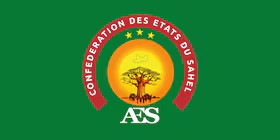
In a significant move aimed at deepening regional integration, the Heads of State of Mali, Burkina Faso, and Niger have agreed to transform the Liptako-Gourma Integrated Development Authority (ALG) into the implementing agency for the Confederation of Sahel States (AES).
The transition is set to be completed by December 31, 2025, following a virtual summit held on July 11.
Chaired by General Abdourahamane Tiani, President of Niger and current ALG president, the 8th ordinary session saw the participation of Mali’s Assimi Goïta and Burkina Faso’s Ibrahim Traoré.
The summit’s primary focus was to realign ALG’s mission with the broader goals of the AES, seeking to bolster cooperation across the Sahel region.
Several decisive measures were approved, including maintaining ALG’s headquarters in Ouagadougou, appointing a provisional administrator, conducting an institutional audit, and planning a phased transfer of responsibilities to the new agency.
Founded in 1970 and operational since 1973, ALG has long been dedicated to the integrated development of a 370,000 km² border region plagued by insecurity and poverty.
Over the decades, it has launched more than 230 projects in water supply, agriculture, infrastructure, and education.
Between 2015 and 2021 alone, ALG mobilized nearly 65 billion CFA francs, predominantly through international aid.
Its achievements include 1,500 km of rural roads constructed, development of 12,000 hectares of land, installation of 700 drinking water boreholes, and training for thousands of beneficiaries.
However, ongoing security challenges, limited funding, and coordination hurdles with national policies have constrained its impact.
The transition to an AES agency presents notable challenges.
The compressed timeline leaves less than six months for a full institutional overhaul. Financial reliance on external donors raises concerns about the new agency’s sustainability amid the Confederation’s push for autonomy.
There is a risk that the entity could become a purely administrative body without operational effectiveness, unless a clear strategy and increased resources are secured.
President Assimi Goïta stressed the need to preserve ALG’s expertise while reforming its processes to better serve AES priorities and local communities.
He advocated for streamlining existing structures rather than creating costly new institutions.
The Heads of State have tasked their ministers and experts with outlining the agency’s future configuration, balancing regional ambitions with on-the-ground realities.
This decision marks a crucial step toward enhanced regional solidarity, sovereignty, and development driven by local dynamics in the Sahel.



